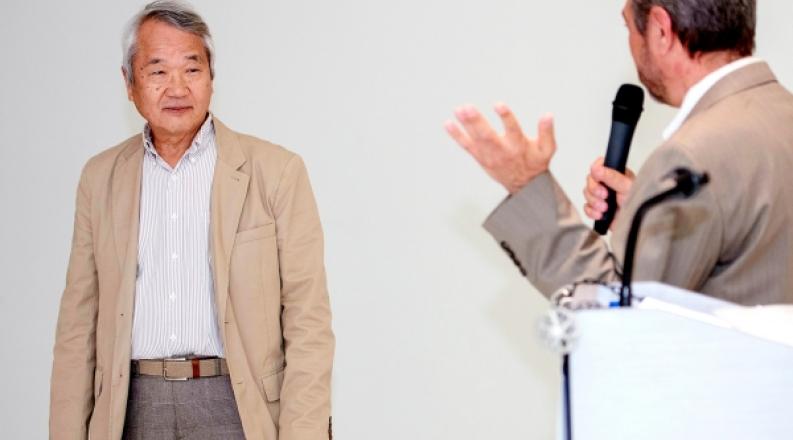When Isao Ishibashi first came to ODU in 1986, Ronald Reagan was president, gasoline was 86 cents a gallon and the top Billboard song of the year was "That's What Friends Are For" by Dionne Warwick and Friends.
Thirty-six years later, Joe Biden is president, the top song is Wait For U by Future, featuring Drake and Tems, and the price of gas - we won't talk about that.
And, after a long and storied career, Ishibashi, professor in the Department of Civil and Environmental Engineering, is retiring.
Ishibashi earned his doctorate in civil engineering from the University of Washington (UW) in 1974. He stayed at UW as a research faculty member until 1981. He also worked occasionally as a geotechnical engineer for a Seattle consulting firm. From 1981 to 1985, he served as associate professor at Cornell University before coming to ODU.
Ishibashi earned his doctorate in civil engineering from the University of Washington (UW) in 1974. He stayed at UW as a research faculty member until 1981 while also occasionally working as a geotechnical engineer for a Seattle consulting firm. From 1981 to 1985, he served as associate professor at Cornell University before coming to ODU.
Ishibashi, an expert in the area of geotechnical and earthquake engineering, has spent many years researching the subject. His textbook, "Soil Mechanics Fundamentals and Applications" is used at institutions around the world.
"In my research field, I have developed in-depth observations and models on Dynamic lateral earth and water pressures against walls during earthquakes, soil's anisotropic characterization with its relations with liquefaction potential during earthquakes," he explained.
At ODU, Ishibashi served as graduate program director for the Department of Civil and Environmental Engineering from 1997-2021 and as assistant chair from 2017-2022.
"Isao has made significant contributions in his academic career to the department, the university and the civil engineering profession," said Sherif Ishak, professor and chair of the Department of Civil and Environmental Engineering. "He is a great scholar, colleague and friend."
"He will be greatly missed," Ishak added.
Ishibashi will continue to stay busy. "I plan to start the next step of my life beyond academia; traveling, gardening, music, art and crafting," he said.
Music, in particular, will play an important part of his life. Ishibashi, a saxophone player, has performed and recorded with his son, Kishi Bashi, a well-known musician.
"I love music and art, which may not be necessary for survival," he said. "But those things are needed for human beings to really live."



